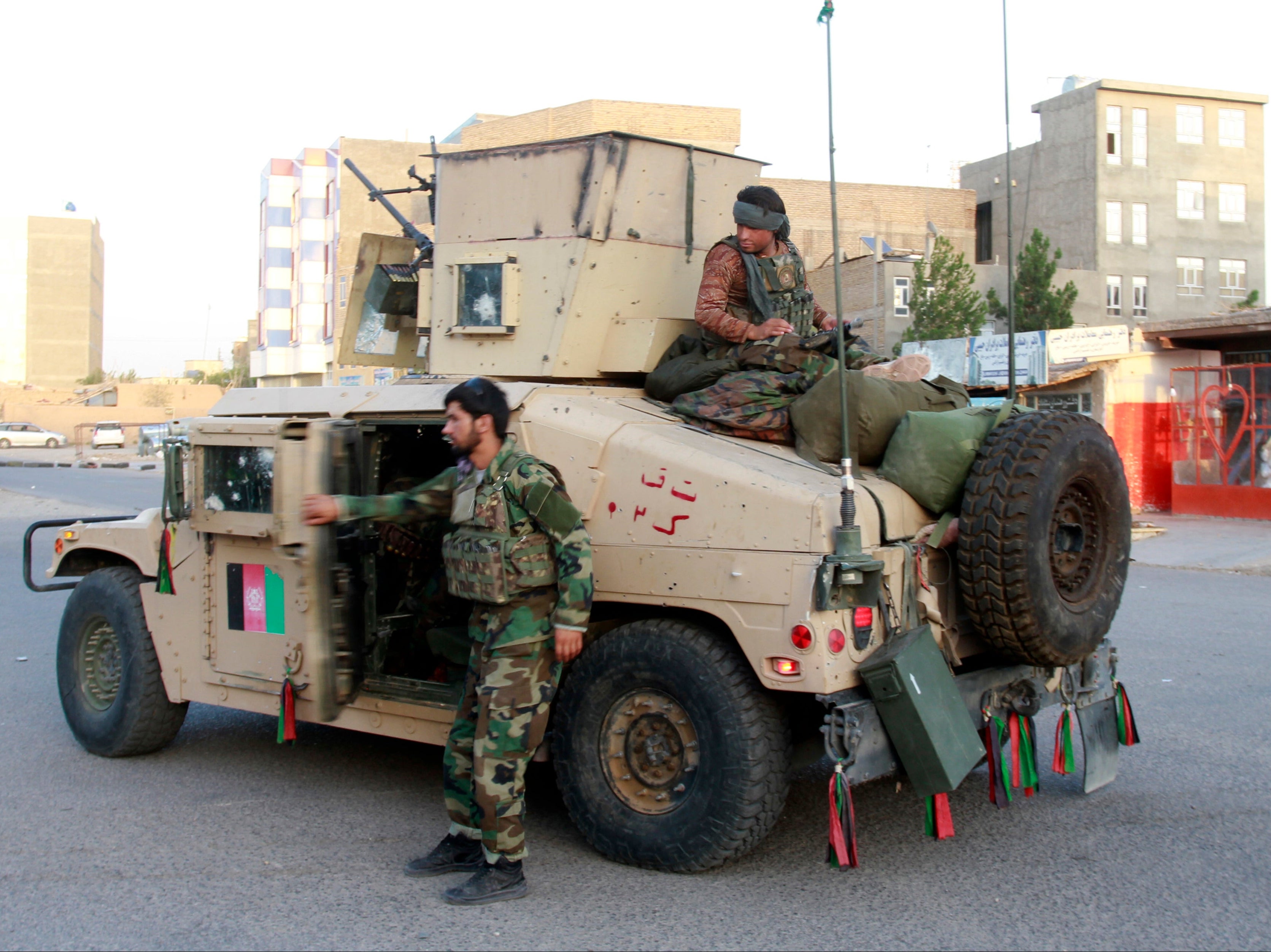The Afghan people need our help and support – many are at risk from the Taliban
I mentor a young Afghan woman whose family fled the country. We cannot forget the needs of ordinary people


Your support helps us to tell the story
From reproductive rights to climate change to Big Tech, The Independent is on the ground when the story is developing. Whether it's investigating the financials of Elon Musk's pro-Trump PAC or producing our latest documentary, 'The A Word', which shines a light on the American women fighting for reproductive rights, we know how important it is to parse out the facts from the messaging.
At such a critical moment in US history, we need reporters on the ground. Your donation allows us to keep sending journalists to speak to both sides of the story.
The Independent is trusted by Americans across the entire political spectrum. And unlike many other quality news outlets, we choose not to lock Americans out of our reporting and analysis with paywalls. We believe quality journalism should be available to everyone, paid for by those who can afford it.
Your support makes all the difference.In 2001, when the Taliban held power, women were denied education and employment, could not visit health centres and were forced to wear the burqa – it was not a choice, as it is in the UK.
The Taliban are now trying to prove that they have changed by seeking allies in – and support from – past adversaries. They say women can have jobs and education, and that this is consistent with Islamic principles and Afghan traditions. Nevertheless, the Taliban have their own warped interpretation of what is right.
US Secretary of State Antony Blinken recently remarked that “atrocities they have committed are being reported in the areas they have taken over”. Afghan women facing subjugation also say that the Taliban have not changed at all ideologically.
With the US withdrawing its forces and coalition countries to withdraw completely by 11 September 2021, what does this mean for those left to fend for themselves?
There have been numerous failed attempts at instigating a peace agreement, and even since an agreement was reached in December 2020 on the basis for negotiations to proceed, peace talks have made no progress since then. Regardless, the US and its allies believe that the original objectives of the campaign in Afghanistan have been achieved and that a military presence is no longer appropriate. I disagree.
We all knew that the military would leave, but I disagree with the way it has been handled.
For a long time, I have mentored a young Afghan woman whose family escaped the Taliban. From secretly dressing up at weddings, to covering up to avoid torture, the family fled through five countries before settling in the UK. The family comprises six daughters and one son. With female members of their extended family back in Afghanistan, they are afraid that as the Taliban occupies more territories, millions of girls and women will face oppression and violence.
One of the daughters said: “When the Taliban ruled Afghanistan, they banned us from going to school to prevent us from having an education, in case we got stronger and became leaders.”
Since the toppling of the Taliban two decades ago, progress was made in girls’ education when international aid enabled the building of schools and safe access to learning. It was not perfect, but at least it was a step in the right direction.
In May 2021, in Kabul, Sayed ul-Shuhada High School was attacked, resulting in the death of at least 85 people, including many schoolgirls determined to get an education. This is another sign that Taliban control disproportionately affects girls and women, especially those attempting to carve out a brighter future for themselves.
Sir Ed Davey, leader of the Liberal Democrats, said: “As the Taliban take swathes of territory on their advance towards Kabul, millions of women and girls are facing the prospect of a new era of injustice, inequality and brutality – while the potential for a new vector of international terrorism forms across Afghanistan.”
In 2001, it was the 9/11 al-Qaeda-led attacks that instigated the Bush administration’s decision to wage a global war on terrorism, and to put Afghan women’s rights and empowerment at the heart of the fight against the Taliban.
During the subsequent Barack Obama administration, secretary of state Hillary Clinton said in a policy speech on Afghanistan that the Taliban needed to reject al-Qaeda or “face the consequences”. Talking about Afghan women’s significant contribution to the Peace Jirga, she also said: “We believe the potential for sustainable peace will be subverted if women are silenced or marginalised.”
So much of western rhetoric has focused on the plight of Afghan women and girls, and the fight for their economic, social, and political empowerment.
If the UK government fails to collaborate with international partners and the Taliban grows stronger on the battlefield, we will have failed to meet our responsibilities to the Afghan people. The fate of Afghan girls and women and their rights will hang by a thread.
Rabina Khan is a Liberal Democrat councillor
Join our commenting forum
Join thought-provoking conversations, follow other Independent readers and see their replies
Comments